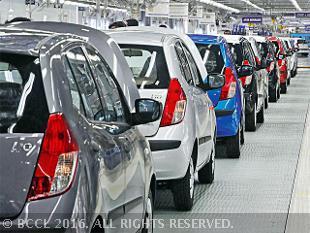Auto industry fears steel import curbs would hamper manufacturing operations

NEW DELHI | KOLKATA: Some of the top players in India's automotive industry are worried about the government's decision to ban production, storage and sale of steel without Bureau of Indian Standards (BIS) certification, a step that they fear would hurt, even halt, their manufacturing operations.
The ban, which will take effect on March 15, though is seen by the steel industry as the most effective move so far to curb steel imports, which have been on the rise at the cost of local producers. While the compulsory BIS certification is good news for the steel industry, it is not so for auto makers.
Car makers currently import high-tensile automotive steel from Japan and Korea for production of critical components, top sources in the auto industry said. If the steel ministry's order to make BIS certification compulsory, production will come to a stop across the passenger vehicle industry, they claimed.
"The auto industry uses its own proprietary technology to certify its vehicles and chooses the appropriate steel for such certification. BIS standards are much more relaxed than the international standards of Japanese and Korean manufacturers, where the auto industry is mostly importing from," said a senior executive at a leading car maker, who did not want to be named. "This order will adversely affect manufacturing in the country." Though no official numbers are available on the import of automotive steel, industry estimates suggest at least 20% of steel used by passenger vehicle manufacturers come in from Japan and Korea.
Some industry experts say steel similar to what these companies import is available locally, and the auto makers are trying to protect their long-term contracts with foreign steelmakers. Vishnu Mathur, director-general of the Society of Indian Automobile Manblock ufactures, however, said even if the technology is available, the volume of imported autograde steel is low and does not justify local production. "Currently, the industry has inventory for a month or so. But if the government does not remove the requirement or extends the time for certification, production across the PV (passenger vehicle) industry will stop. It's not about the quantity imported. The fact is even if one small part is unavailable, manufacturing will be affected," he said.
Vinnie Mehta, director general of the Automotive Component Manufacturers' Association, echoed the sentiment. "Over 70% of the cost of a component is raw material, which is largely steel. Even if we were to take BIS certification for imported steel, which is of higher quality, it is a time consuming process. It cannot be completed within three months (the government issued the order in December)," said Mehta.
BIS certification involves a visit of Indian government officials to steel mills overseas to certify their products and processes. This usually takes 6-12 months, Mehta said.
While the automobile industry alleges that local steel manufacturers had put their force behind the current order to block imports, which could hurt their business, industry experts say the situation may not be as dire as they project. "Imported automobile steel is used particularly in door and roof panels.
Imported sheet metal is required so as to keep light the weight of the vehicle, without compromising on strength of the material utilised," said VG Ramakrishnan, managing director at consulting firm Avanteum Advisors. But he said the technology has been introduced locally by steel producers like JSW Steel, Tata Steel and Steel Authority of India.
According to him, those who have a problem with the move are Japanese and Korean car makers. "Nearly 80% of the passenger vehicle market in India is dominated by Japanese and Korean car makers, who have long-term cost-competitive contracts with suppliers in their home market," Ramakrishnan said.
The government issued the Steel and Steel Products Quality Control Order 2015 in December to curb production, sale or distribution of any steel product that does not meet BIS guidelines. It was part of an overall effort to rein in increasing steel imports for which the government has already issued safeguard duty and anti-dumping duty on steel products.
The steel industry has defended the move. Sanak Mishra, secretary general of the Indian Steel Association, a grouping of steel majors, said: "We have said all steel, irrespective of whether it is produced here or abroad for consumption in India, should be subjected to quality standards. So there is a level playing field." The steel products under mandatory BIS specifications include cold rolled (CR) steel strips, hot rolled (HR) steel flat products and HR steel strips for cold rolling purposes. Some of these are used in manufacturing automobiles.
Imports of steel into India shot up over 41% to 5.42 million tonne in the April-September period of fiscal 2016, according to data from the steel ministry's Joint Plant Committee.